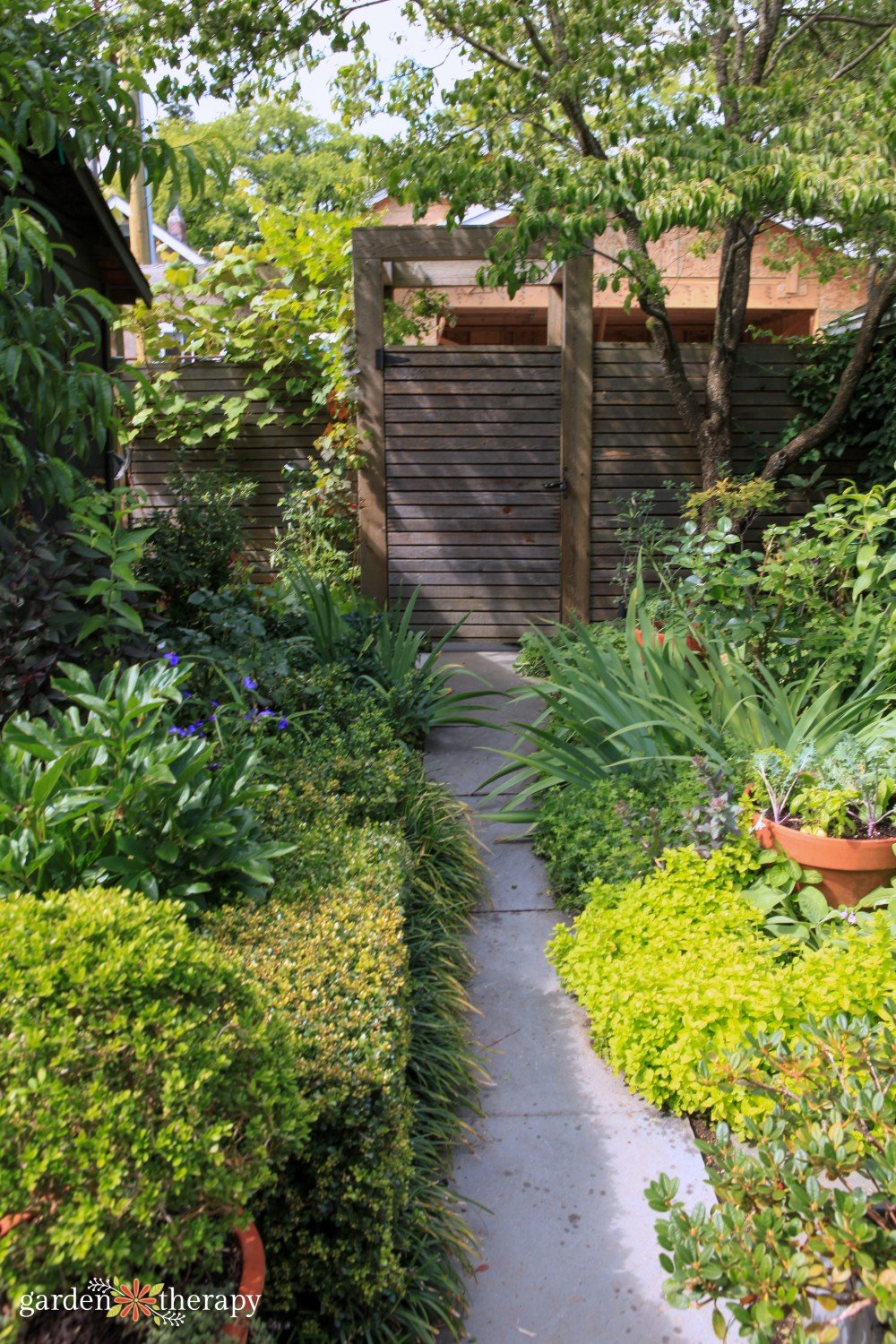August in the garden is a magical place. The summer display of flowers is at its peak, the pollinators are buzzing by, and there are more zucchinis than you know what to do with. But that doesn’t mean there aren’t some August gardening tasks to get done!
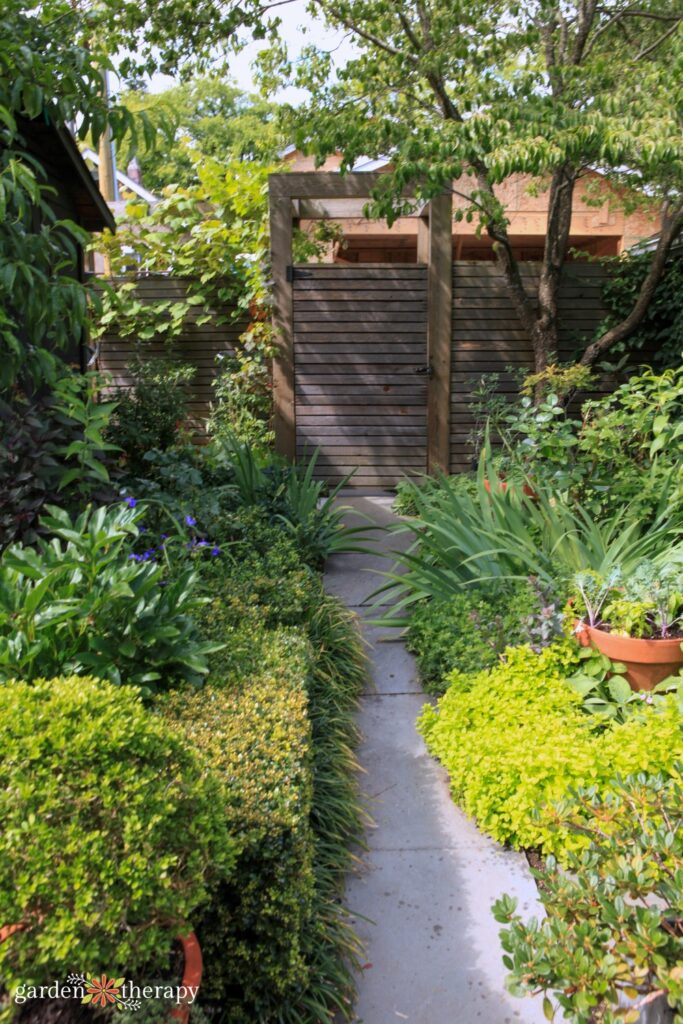
By the time August rolls around, the dog days of summer are just around the corner. All of the hard work we’ve put into creating our gardens for the year is done, minus a project or two.
Now, the focus is on enjoying and maintaining the garden! In August, you get to enjoy the bounty of all your edible plants and the beautiful ornamentals in their peak bloom.
These are all the August gardening tasks I like to tackle, including how to keep my garden happy during the summer months and how I enjoy the space in all its glory.
This post will cover…
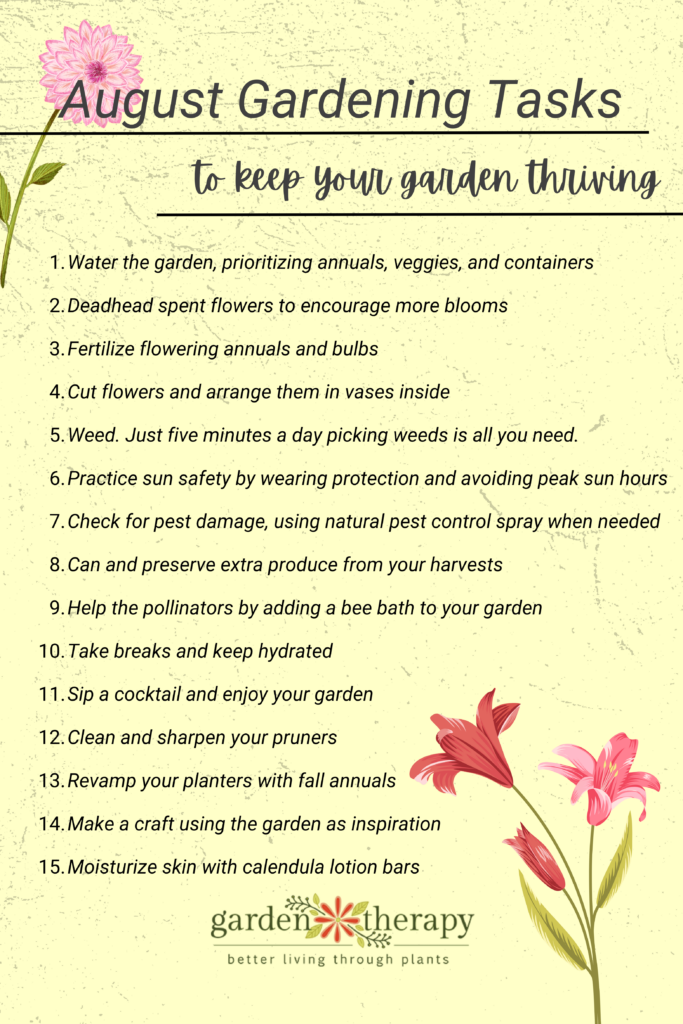

1. Water the Garden
It might go without saying, but the biggest task of August will be watering. Your annuals, bulbs, and vegetables will need frequent watering. When very hot, this can mean every day. I also check on my container plants nearly every day as they dry out much quicker.
I don’t worry much about my perennials, unless we’ve gone through an extensive heat wave and a drought. Your perennials are pretty good at letting you know if they need water, including droopy or crisp leaves.
Try to lessen your need for water with these conservation tips. And heading away on vacation? Use these plant sitters to keep your garden watered.
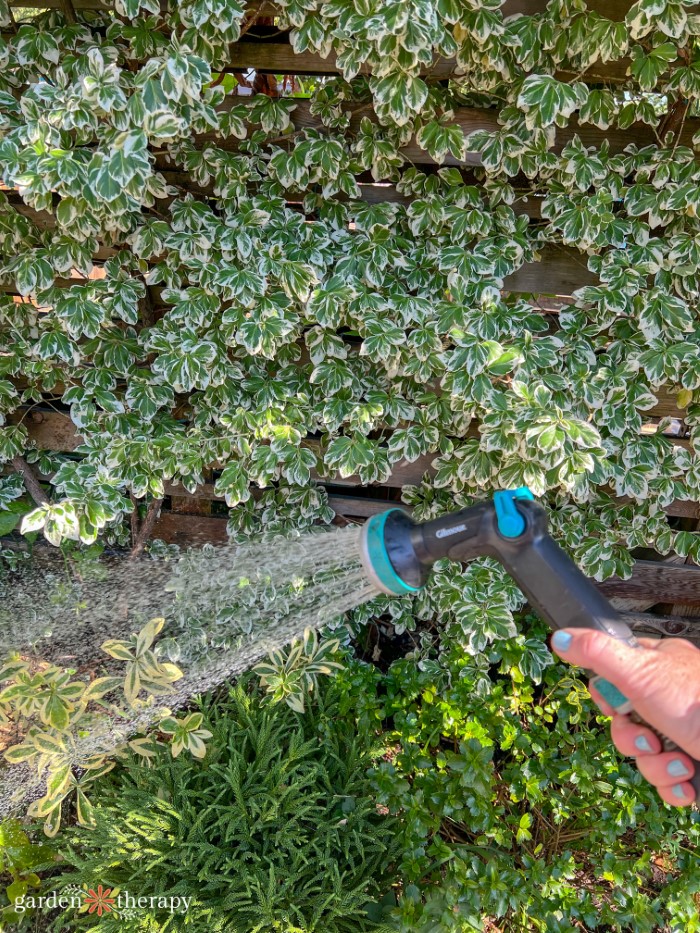

2. Deadhead Flowers
The key to getting more blooms is deadheading. This is when you remove the spent flower heads before they go to seed. In turn, the plant produces more flowers to replace the ones they just lost.
This works for many plants, mainly those that are multi-branching. Others that I deadhead regularly include dahlia, lavender, hollyhock, petunia, Shasta daisy, and dianthus. I list more in this post.
Some flowers I like the seed heads, so I leave them behind, including roses, poppies, nigella, irises, and allium.
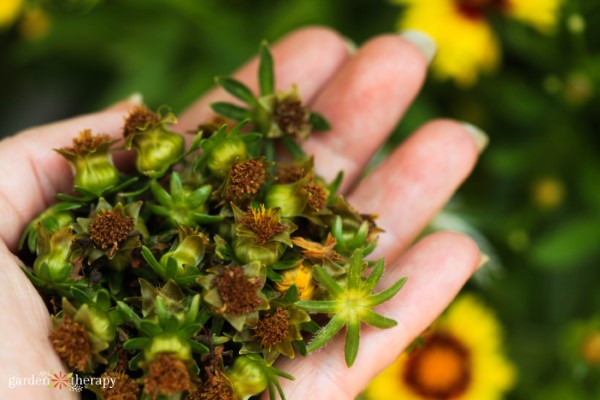

3. Fertilize
In August, I’m still fertilizing those plants that I want to flower and grow. Remember, you only want to fertilize during the active growth season. If the plant is nearing its harvest time, you can stop fertilizing. Perennials often won’t need fertilizer during this time of year either.
It’s a good idea to prioritize flowering plants, such as bulbs or cut flowers, as well as plants in containers. Fertilize using a granular fertilizer once a month or a liquid fertilizer twice a month. I only use organic fertilizer since it’s safer and better to use.
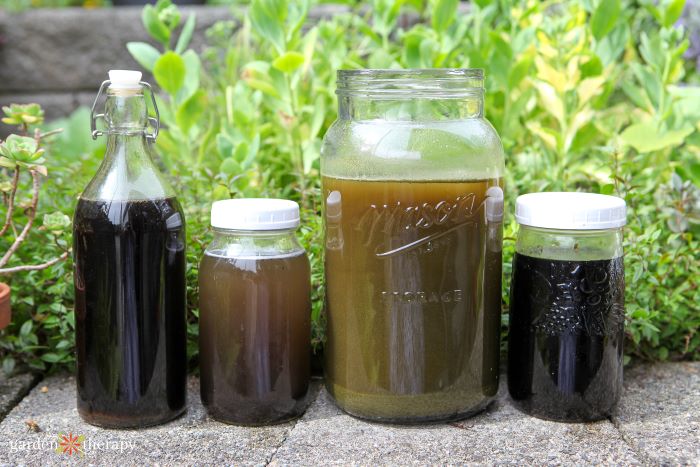

4. Arrange Flowers
Speaking of cut flowers, why not clip some flowers from your garden and bring them indoors? The bounty of flowers in August is always spectacular, and there’s more than enough to bring a few to enjoy indoors or gift to a neighbour.
To make the most of your cut flowers, you’ll want to harvest them in the morning when the plant is the most hydrated and place them immediately in water. Choose flowers BEFORE they reach peak bloom, so they last longer in the vase and don’t drop pollen and seeds indoors.
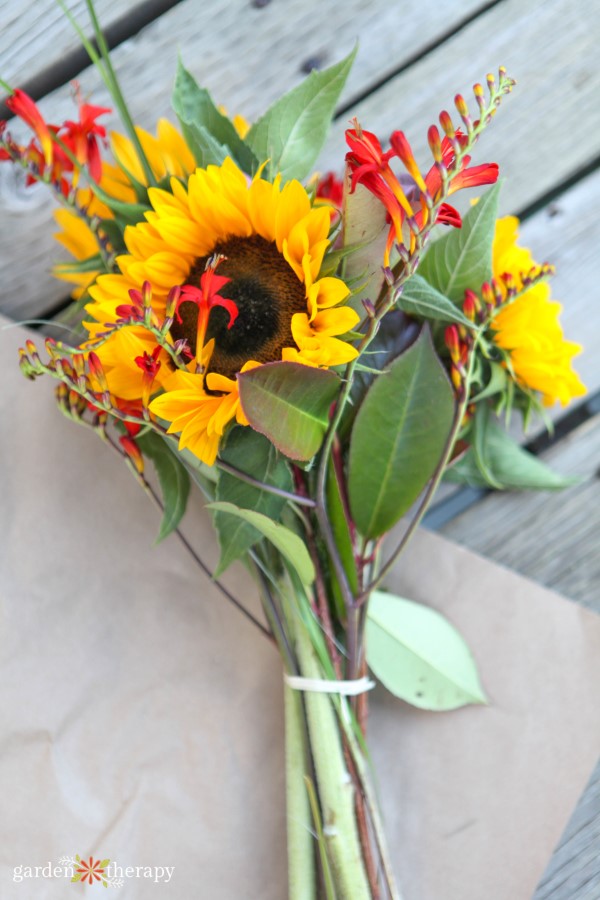

5. Weed
Weeding is a never-ending task during the growing months. I find it slows down by August, as my chosen plants have now crowded out the beds, and the lack of rain prevents new seeds from germinating.
That being said, it’s always a good idea to do a weekly weed. I walk through my garden daily to check on my plants, and I’ll often pick some weeds as I go. Just five minutes a day can make a big difference.
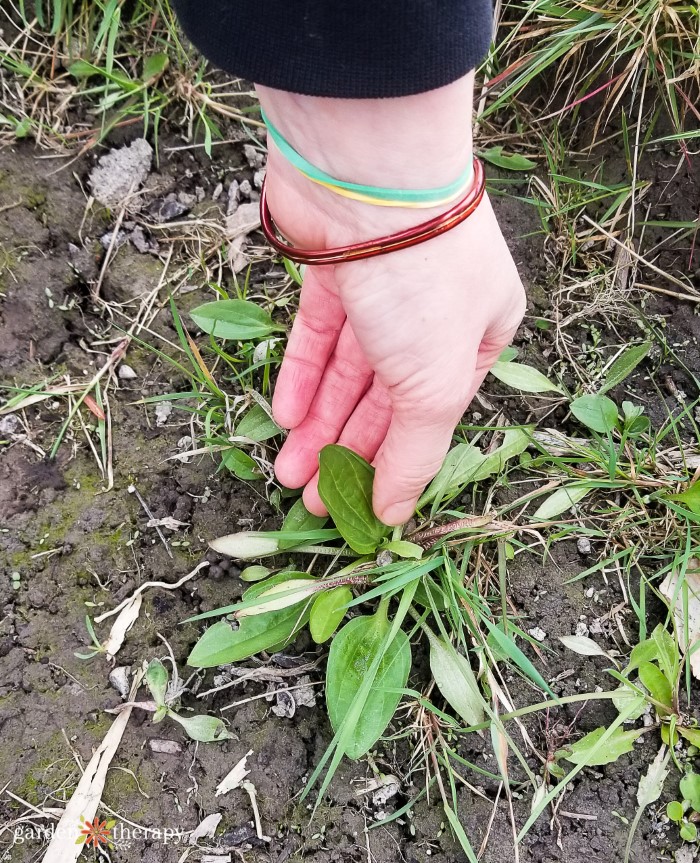

6. Practice Sun Safety
While doing all these August gardening tasks, remember to keep sun safety top of mind. There are many things you can do to protect yourself, including wearing a hat, sunscreen, and long sleeves.
That being said, the best thing you can do is avoid the sun in the first place. I like to garden in the mornings and the evenings. If I’m outside during peak sun hours, I try my best to stay in the shade and under an umbrella.
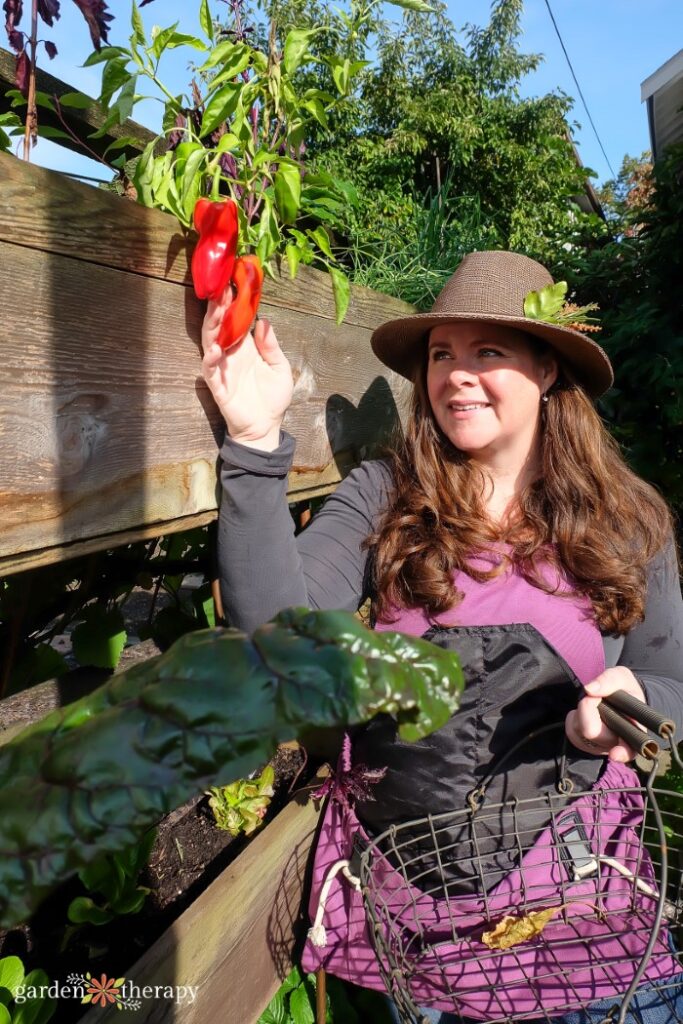

7. Pest Control
Another big maintenance task is keeping up with any pests that may show up. I do all organic gardening, so I deal with pests by examining the food chain and seeing how I can either move or change what they’re eating or introduce something to eat them!
For instance, ladybugs are great for controlling aphids. I also include plants to attract the aphids and keep them away from my more precious plants. Companion planting is a great practice to help with pest control. And when I’m really dealing with a tricky pest, I’ll make a batch of my natural pest control spray.
8. Can and Preserve Harvests
August is when many plants begin to show their bounty. Hopefully, you’ve practiced some succession gardening and your harvests are spread out. But even with careful planning, we can have more than we know what to do with.
After you’ve eaten and shared what you can from your harvest, preserve some to save for the cold season. Pickle vegetables, make jam out of your fruit and berries, dry herbs, and even save some flower petals for crafty projects down the line.
9. Help the Pollinators
In the thick of the summer, it’s not just us who are thirsty and could go for a splash in the pool. Consider adding a bee bath or a butterfly puddler to help the little pollinators safely get some water.
You can also add a hummingbird feeder, making sure to change the sugar water fairly regularly in the heat, or a suet feeder for local songbirds.
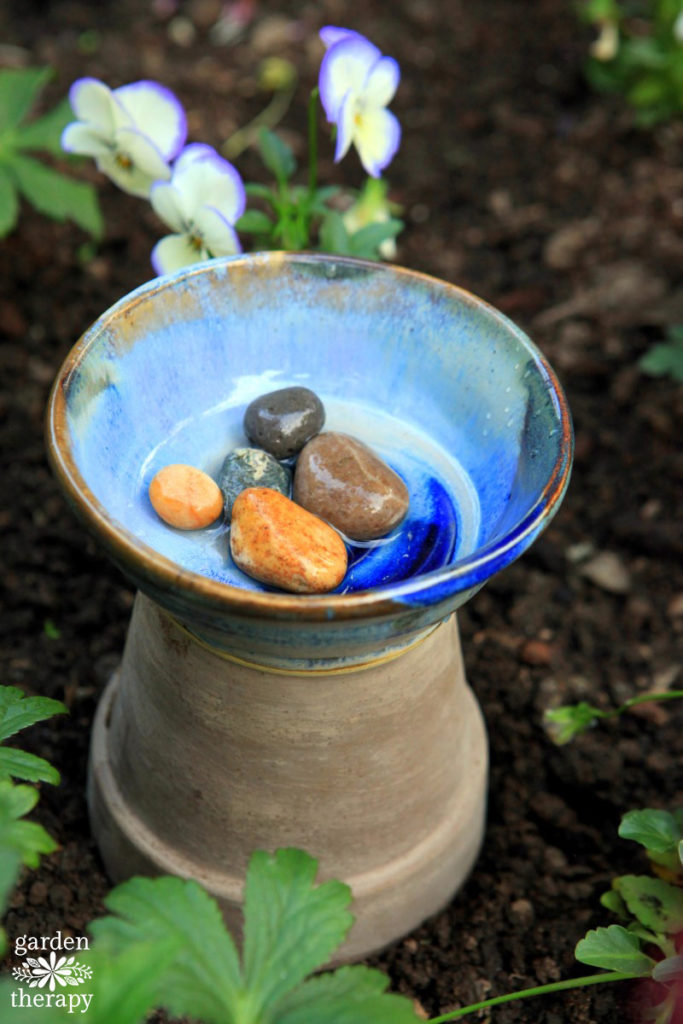

10. Take Care of Your Body
A couple of hours in the garden is a full-body workout, and you want to remember to treat your body kindly. Before gardening, try doing some light stretching to get the muscles ready. Stay hydrated by keeping a water bottle outside with you, and take breaks often.
As someone who started gardening as a way to cope with a chronic disability, I’ve had to adapt my approach to gardening many times, including the garden itself. Here are a few tips for using the garden to heal, as well as how to garden when dealing with back pain.
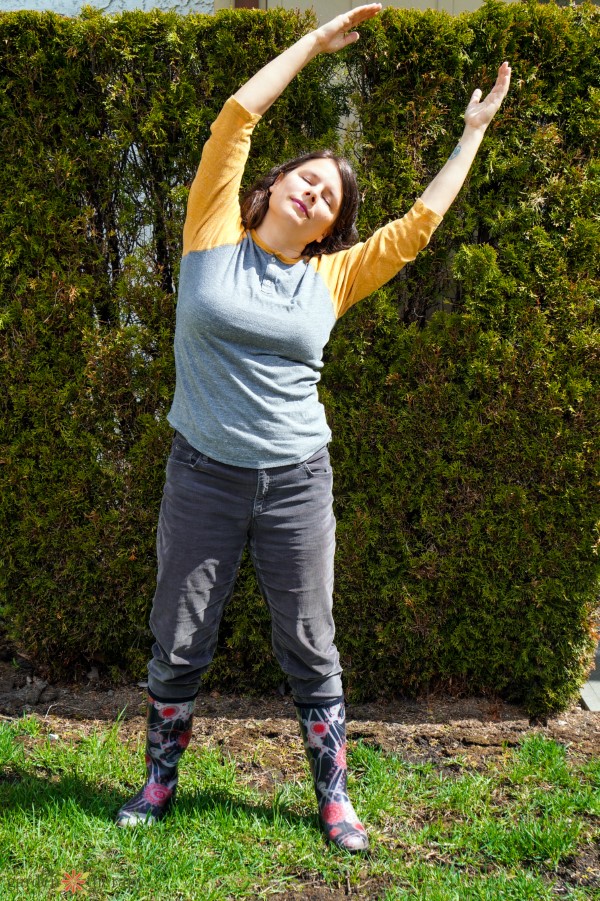

11. Enjoy Your Backyard
Your garden doesn’t have to be all work and no play. Take a moment every day to enjoy your garden. Sit out and enjoy a cocktail or mocktail featuring ingredients from the garden. Host a garden party where you enjoy some of your harvest and the company of friends and flowers. Sit outside and read that summer beach read everyone’s talking about.
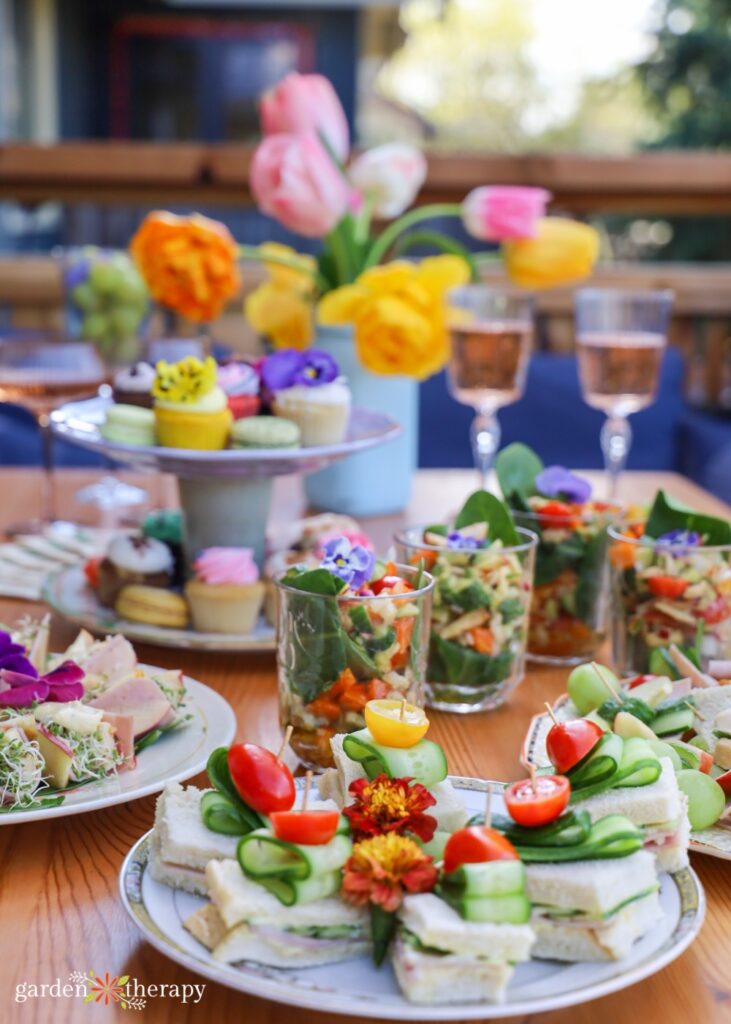

At the end of the season, I like to do a big clean of all my gardening tools. But it’s also a good idea to clean tools intermittently to prevent them from rusting or breaking. Give all your tools a quick wipe with a disinfectant to avoid spreading disease, and sharpen any pruning and trimming items.
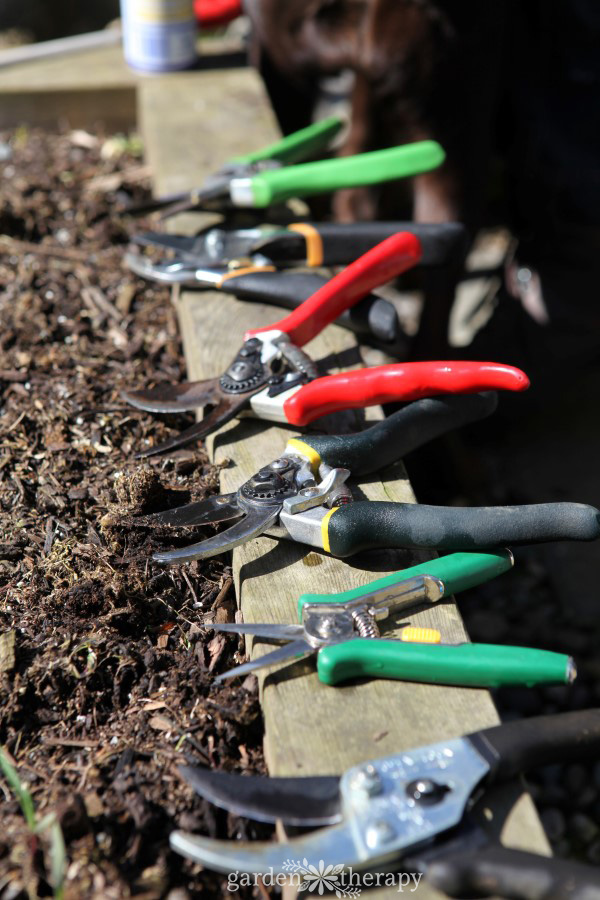

13. Revamp Your Planters
By the end of August, some of the plants we started the summer off with may not be in pristine condition anymore. At the end of the month, many fall and cool-loving flowers and annuals are for sale. I like to snag a few to revitalize the planters by my front door and on my patio, replacing any annuals that are past their summer prime.
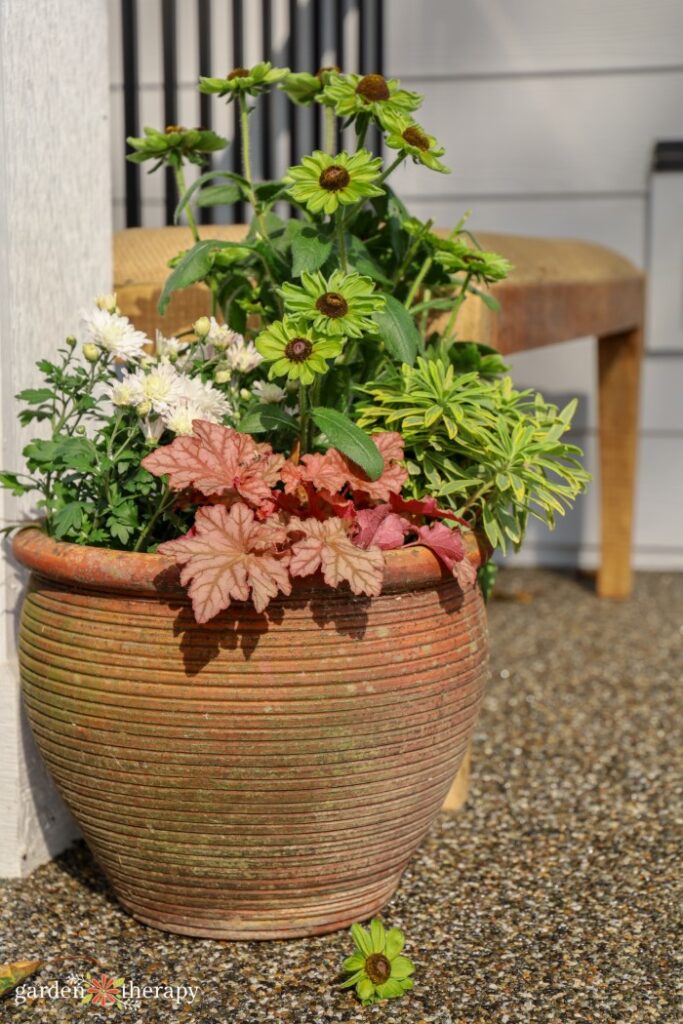

14. Make a Garden Craft
I love getting creative and using my hands to make beautiful, garden-inspired art. Sometimes I include Kiddo and we make a day out of it, and other times I make items to decorate the house or share with others.
I have many crafting projects on the blog that are great for the summer, including DIY citronella candles, cyanotype sun print cards, eco printing flowers onto fabric, creating dried flower arrangements, pressing flowers in a homemade wood press, and making clay leaf dishes using plants from the garden.
15. Calendula Summer Lotion Bars
It’s no secret here that I love my natural beauty products. I always want to know and trust the ingredients I’m putting on my skin. Every summer, I always make a batch of calendula lotion bars out of all the calendula blooming in my garden, as it’s one of the best healing skincare herbs around.
These summer lotion bars are great for hydrating the skin, especially after a day in the sun. They moisturize without the heaviness of a thicker lotion better suited for the winter.
And those are all the August gardening tasks I work on this time of year. What tasks do you prioritize in your garden during August? Let me know in the comments below.
More August Gardening Tasks to Work On
A city girl who learned to garden and it changed everything. Author, artist, Master Gardener. Better living through plants.

